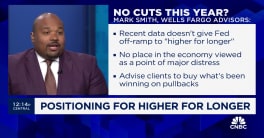Now Mr. Oxley has been joined by Rep Barney Frank (D-Massachusetts) the Ranking (minority) Member in yet another letter to GAO.
The letter, dated March 15, stated that the Committee is continuing its oversight of the Nation's housing market and potential barriers to home ownership, and asked the GAO to survey the state of price competition in the market for real estate brokerage services. Specifically, the two asked GAO to address four issues. Hint: there may be an agenda here too.
- What is the size of the residential real estate market in this country as measured by the number of closings last year; the cumulative value of those closings; and the number of licensed real estate agents currently operating in the country?
- Please compare the increase in housing prices with the rate of inflation in the U.S. over the past five years.
- In those states that have authorized state-chartered depository institutions to engage in real estate brokerage and settlement services, have any negative effects on competition or consumers been observed?
- What benefit, if any, is there for consumers from competition in the residential real estate brokerage market?
Extra credit if you spotted Number 3. A perennial fixture in every legislative session for the last five or six years have been bills to make permanent a ban on federally chartered banks entering into the real estate business. This year they are HR 111 and SR 98, each with an impressive list of co-sponsors from either side of the aisle. This bill is very important to the National Association of Realtors which lobbies heavily on its behalf and is a thorn in the side of the American Bankers Association whose members would like to broaden the list of services it can provide to its customers.
Needless to say, The National Association of Realtors (NAR) rushed to assure its members that it will be meeting with GAO staff to "provide information that aims to show that the real estate industry is one of the most competitive in the country." The American Banking Association is probably knocking on GAO's door too, but its industry activities are harder to track (a subscription to its newsletter carries a stratospheric price tag).
One cannot give a brief history of this real estate/banking issue. In the late 1990's the Federal Reserve signaled its intention to broaden the meaning of financial services to include ancillary activities which might include stock trading, insurance, and real estate management and brokerage. Ever since then the real estate industry (probably the insurance and stock brokerage lobby as well, but we can't pay attention to everyone) has been fighting to keep banks off of its turf.
The issue has roots stretching all the way back to Depression and the Glass-Steagall Act of 1933 with major changes in 1956 (Bank Holding Company Act) and 1999 (Gramm-Leach-Bililey Act.) Anyone who really wants to know more about the minutia surrounding this issue can Google the last reference and emerse himself in hours of legislative trivia.
But, back to the original topic - the letter. Oxley and Franks are both
well versed in America's financial systems (Oxley is one of the writers
of the Sarbanes-Oxley Act of 2002 which now regulates a wide range of accounting
practices of major corporations in the wake of Enron, WorldCom, etc.) and Frank
has been engaged in banking regulation at least since the New England banking
crisis of the early 1990s. It will be interesting to follow along with the results
of this letter and even more interesting if these leaders from two different
parties come down on the same side. Assuming, of course, that the real estate
industry/banking industry controversy is really the impetus behind their letter.







